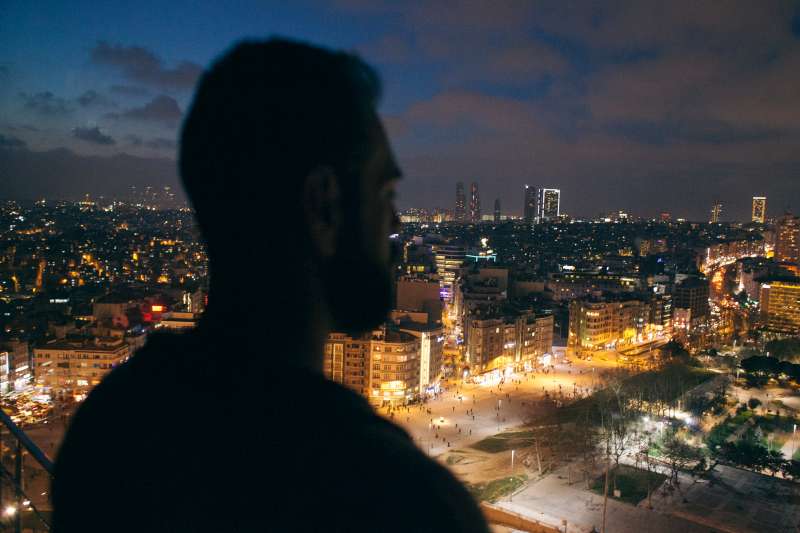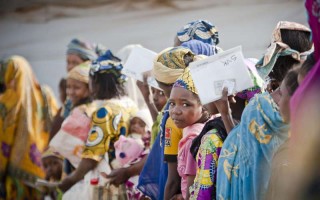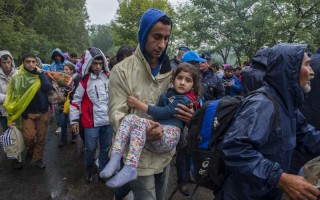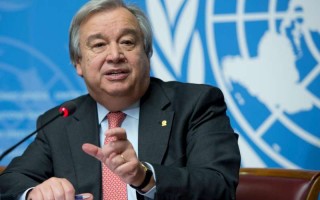
F., from a country in the Middle East, sought asylum in a country in Europe after persecution due to his sexual orientation. © UNHCR / Bradley Secker
GENEVA, Dec 24 (UNHCR)—The UN Refugee Agency is leading the way in delivering protection to lesbian, gay, bisexual, transgender, and intersex (LGBTI) persons in forced displacement with the rolling out of a new training programme for UNHCR staff and other protection and humanitarian workers, the most comprehensive training package of its kind globally.
LGBTI persons fleeing persecution face a complex array of challenges and threats at all stages of displacement, including discrimination, prejudice, violence, difficulty accessing humanitarian services, and barriers to articulating their protection needs during asylum procedures and other interactions with protection and humanitarian actors.
The programme was developed jointly with the International Organization for Migration, IOM, and funded by the United States Bureau for Population, Refugees and Migration (BPRM). It covers relevant terminology, international law, communication, operational protection, conducting interviews, durable solutions, health, and refugee status determination, all with a focus on practical guidance for UNHCR and partner organizations when assisting LGBTI refugees and asylum seekers.
The training package was shaped by UNHCR, IOM and staff of other agencies around the world to ensure global relevance. It encompasses sexual orientation and gender identity, the particular protection risks affecting displaced LGBTI people, specific means to address them and will result in better delivery of protection to LGBTI persons of concern by UNHCR and its partners.
“The need to ensure that the rights of LGBTI people are respected has recently received increased attention and support from UN agencies, States, and the broader humanitarian and human rights community. However, despite significant progress in this effort, discrimination against LGBTI persons persists, and their international protection needs often go unmet,” said UNHCR Assistant High Commissioner for Protection, Volker Turk.
“UNHCR is committed to protecting the rights of LGBTI persons of concern, and will continue to take targeted actions to build the capacity of staff and partners to this end. The training package we have developed is a significant step in that direction,” he added.
UNHCR also recently launched “Protecting Persons with Diverse Sexual Orientations and Gender Identities“—UNHCR’s first global overview of the progress it has made in protecting lesbian, gay, bisexual, transgender, and intersex asylum-seekers, refugees, and others of concern.
The report is a significant contribution to UNHCR’s efforts to fill the information gap about the situation of LGBTI persons of concern and is a blueprint to bolster LGBTI-inclusive protection programming and strengthen advocacy efforts. It identifies strengths and gaps in the protection of LGBTI persons of concern to UNHCR and proposes solutions to address key areas including identification and outreach, displacement conditions, durable solutions, capacity building and use of human rights monitoring mechanisms.





